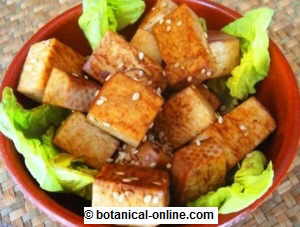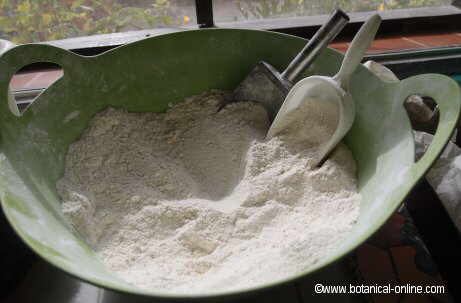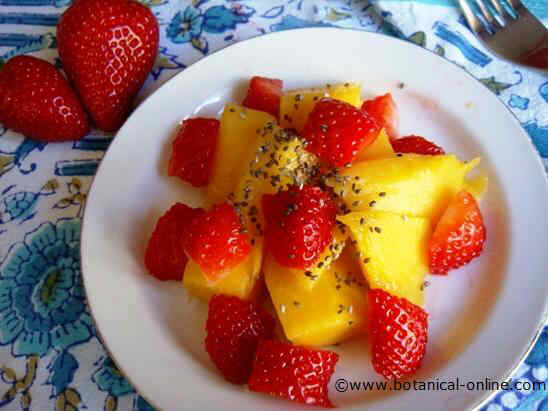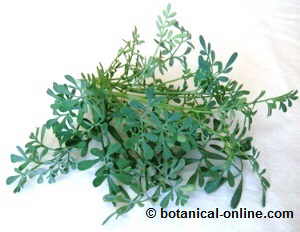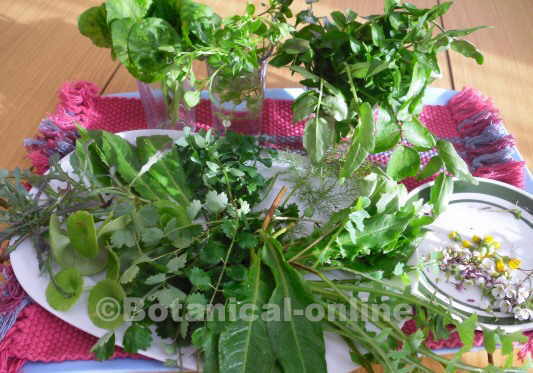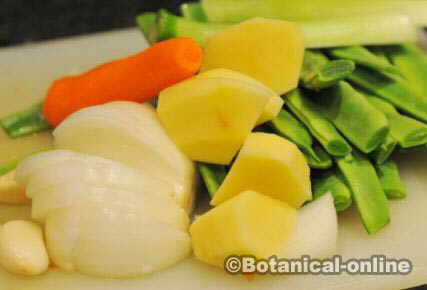Contents
Suitable food for stomach ache
The importance of a suitable diet for your stomach
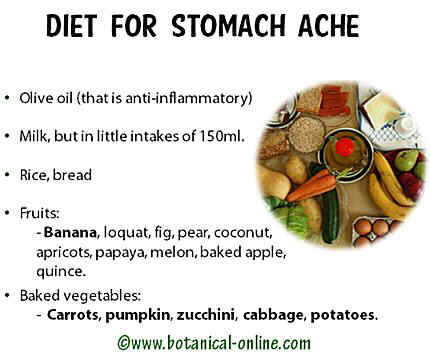
Main suitable food for your stomach
A proper diet can help to prevent stomach ache or reduce its symptoms. This diet should not only contain adequate food and avoid those that may harm us, but must take into account a range of eating habits and the frequency of meals, eating conditions, etc.
What foods are suitable for an upset stomach?
Suitable foods are those that are not too acidic or too feculent. The acidity of the stomach is a major disorder that causes stomach pain, while many of the problems about cramps and spasms are caused by excessive flatulence in the stomach or intestine. Flatulence pressures abdominal muscle and produces pain.
Natural plant foods are particularly interesting for their ability to provide fluids and fiber. But it’s worth mentioning specially foods with rich demulcent properties. We call demulcent all the components that protect the skin or the internal mucous. Among all of them the most interesting ones are pectin, mucilages and starch.
- Foods rich in pectin: Pectin is a type of soluble fiber with antigastritic, softening and repairing properties which are very recommended for the intestinal mucous. Among the foods that contain pectin we have the following:
- Apples: In addition to pectin, apples are rich in malic acid and quercetin. We must not forget that malic acid and quercetin possess bacteriostatic properties, so they are capable of inhibiting the development of harmful bacteria, which, in many cases, are responsible for the formation of intestinal putrefaction causing flatulence, poor digestion, etc.
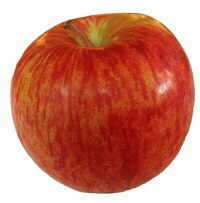
Eating apples can greatly increase the gas content in the intestine, but discarding the apples completely means to get rid of a fruit very rich in pectin, a type of soluble fiber highly recommended to avoid constipation. We must not forget that constipation is also responsible for intestinal putrefaction that generate many gases. The best solution will be to eat this food slowly, chewing it well to allow time for the gases to be expelled from the mouth before swallowing them.
- Bananas: This is a very digestible fruit, rich in ingredients that stimulate the digestion, so besides being very digestive, it is very suitable to combat poor appetite, or even anorexia
- Carrots: Carrots are laxative so they are useful to prevent or solve constipation. It has been stated that its ingestion promotes good intestinal regulation. Eating carrots is very desirable for babies. Feeding bottles can be carried out with well mashed and sieved carrots boiled for 90 minutes. They are highly digestible and nutritive.
- Foods rich in mucilages: Mucilages have the ability to protect internal mucous membranes, so their use is appropriate for the treatment of irritation of the digestive system. Among the many foods that contain mucilages we can mention:
OKRA FOR YOUR STOMACH Okra (see picture above) is a tropical plant of the Malvaceae family, the fruits of which remind of an immature and elongated green pepper. Okra is the food that contains most mucilages. For this reason, when cooked, it produces a very characteristic mucus. It is widely consumed in the Middle East, Brazil and Japan. Its use in the West is increasingly growing. You can prepare it boiled (the most recommended for the stomach), fried or pickled (this is not advisable) |
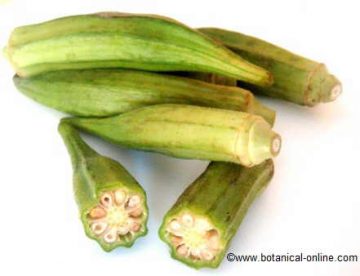
- Borage: The borage contains large amounts of mucilages. Eating boiled borage helps to have the stomach healthy.
- Figs: The fig tree produces one of the fruits that contains more mucilages.
- Foods rich in starch: starch, mixed with water, has demulcent properties. Among the foods rich in starch the most interesting ones are:
- Rice: rice water or boiled rice have demulcent properties which can soften irritated stomachs so it is suitable in case of stomach pain. Other recommended cereals are oats and wheat. (Bread is very suitable to reduce acidity and soothe the stomach)
- Potatoes, cassava or nuts are other foods rich in starch.
What foods are not suitable for an upset stomach?
- Fatty foods: Foods that contain lots of fat, especially animal fat foods are not suitable for sensitive stomachs.
- Very sweet foods: pasta, candy or sweets in general can worsen stomach pain.
- Drinks with caffeine: Caffeine is a stimulant which prevents the stomach muscles to relax. Foods containing caffeine such as colas, coffee, tea, etc. should be avoided.
- Gas beverages: Except in lazy stomachs in which a little gas may help improve digestion, gas beverages increase stomach acid and swelling.
- Is spicy food good for your stomach?: On this subject, there are various opinions. Some specialists argue that pungent spices produce overstimulation of the stomach and they should generally not to be taken by those who have stomachs too active with a tendency to produce acidity, decomposition or intestinal gases. They believe that spices are not responsible for the appearance of ulcers but they worsen them.
Other specialists believe that spicy food, although it causes severe pain in sensitive stomachs, can help to improve stomach problems or it is even suitable for the treatment of ulcer.
Both agree that hot spices are helpful for people who have “lazy stomachs” and show some trouble digesting food, which may also be responsible for problems of stomach pain, flatulence or constipation.
Some non pungent spices such as cinnamon or coriander, are used to facilitate digestion, remove the acidity and expelling gases.
IS MILK GOOD FOR YOUR STOMACH ? Milk is not well tolerated by many adults because they lack the proper enzyme to digest it. This is why many people feel pain or heaviness in the stomach after drinking a glass of milk. Other people drink milk when they feel that their stomach is too acid. This act lowers the acidity temporarily but, in general, it produces a rebound effect that worsens the problem further. People who can not tolerate milk should refrain from taking it. It is better to replace whole milk for products that are well tolerated such as skimmed or predigested products (yogurt, kefir, curd, etc.) |
- What about Citrus?: People to whom citrus (oranges, lemons, tangerines, grapefruit, etc.) will produce heartburn should avoid or reduce their intake. However, these foods are highly recommended for most people because they facilitate digestion and prevent the feeling of heaviness in the stomach
![]() More information about the stomach ache.
More information about the stomach ache.

